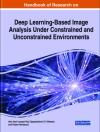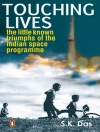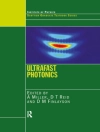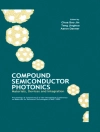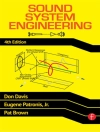With the dissolution of the Soviet Union the nuclear threats facing the world are constantly evolving and have grown more complex since the end of the Cold War. The diversion of complete weapon systems or nuclear material to rogue nations and terrorist organizations has increased. The events of the past years have proved the necessity to reevaluate these threats on a level never before considered. In recognition that no single country possesses all of the answers to the critical scientific, institutional and legal questions associated with combating nuclear and radiological terrorism, the NATO Advanced Research Workshop on “Preparedness for Nuclear and Radiological Threats” and this proceeding was structured to promote wide-ranging, multi-national exploration of critical technology needs and underlying scientific challenges to reducing the threat of nuclear/radiological terrorism; to illustrate through country-specific presentations how resulting technologies were used in national programs; and to outline the role of legal, policy and institutional frameworks in countering nuclear/ radiological terrorism. One key outcome of this book is better understanding of the interdependent contributions from across the international community of the scientific and technological components and the legal, policy and institutional components to combating nuclear and radiological threats.
قائمة المحتويات
Part 1: Nuclear Security and Proliferation.- GAO: Two Decades Evaluating the Impact and Effectiveness of U.S. Nuclear and Radiological Material Security Programs; D. Trimble.- Neutralizing Radicalized Threat Networks, Disrupting WMD Illicit Traffickers and Targeting Corrupt Facilitators; J.M. Luna.- To Pursue an Independent Nuclear Deterrent or Not? Japan’s and South Korea’s Nuclear Decision Making Models; E. Cura Saunders, B.L. Fearey.- Overview of the Cooperative Projects Implemented by the European Commission Joint Research Centre in the Nuclear Security Area Outside Europe; P. Peerani et al.- Proliferation Resistance and Physical Protection (Pr&Pp) Evaluation Methodology and Applications; R.A. Bari.- Next Generation Nuclear Security Policy: Education, Research, and Experience; E. Suzuki et al.- The Management of Radioactive Waste in France – What is the Threat?; J.-M. Boniface, O. Gerald.- Part 2: Combating Nuclear Terrorism.- NATO Nuclear Policy, the Ukraine Crisis, and the Wales Summit; J.A. Larsen.- Risk Informing Security at the US Nuclear Regulatory Commission; J.D. Rivers.- Sck•Cen’s Activities in the Field of CBRN Risk Mitigation: Practical Contributions to Improving Nuclear Security Governance; K. van der Meer et al.- EU Efforts in Managing CBRN Terror Attacks; F. Steinhausler.- A Holistic Approach to Radiological Terrorism; N. Carpintero Santamaria.- The Strategic Impact of an Iranian Nuclear Weapons Capability on Israel; N. Morag.- Nuclear Security Regulation in the United States: An Overview of U.S. NRC Functions and Activities; J. Kutlesa.- Current Activities of the European Union in Fighting CBRN Terrorism Worldwide; J. Sabol, B. Šesták, et al.- Will the Implementation of Small Modular Reactors Affect our Response Protocols to Nuclear and Radiological Threats?; J.T. Voss, R. Goldstein.- Part 3: Advanced Technologies for Nuclear Safety & Security.- Advanced Concepts in Multi-Dimensional Radiation Detection and Imaging; K. Vetter et al.- Dynamics of International Nuclear Safety Post-Fukushima Developments in Regulatory Oversight and Filtered Vent Technology for Six Nuclear Countries; K. Araujo.- The Value of Standards for Detection of Radioactive Materials; L. Pibida, A. Sallaska.- Novel Nuclear Measurements Technologies for Safety & Security; M. Morichi, R. Abou-Khalil et al.- Cosmic Ray Generated Charged Particles for Cargo Inspection; M. Sossong, G. Blanpied et al.- Part 4: Nuclear and Radiological Preparedness.- Lawrence Livermore National Laboratory’s Contribution to U.S. Preparedness for Nuclear and Radiological Threats; B. E. Warner, K. Rath.- The Emerging Threat Environment and the Impact on Nuclear Preparedness; V. Oxford.- Cross-Border Cooperation: A Key towards Better Preparedness for Nuclear and Radiological Threats; A. Nalbandyan.- Challemges in National Nuclear Threat Reduction Field-Regional Puzzle; L. Chelidze, G. Nabakhtiani.


